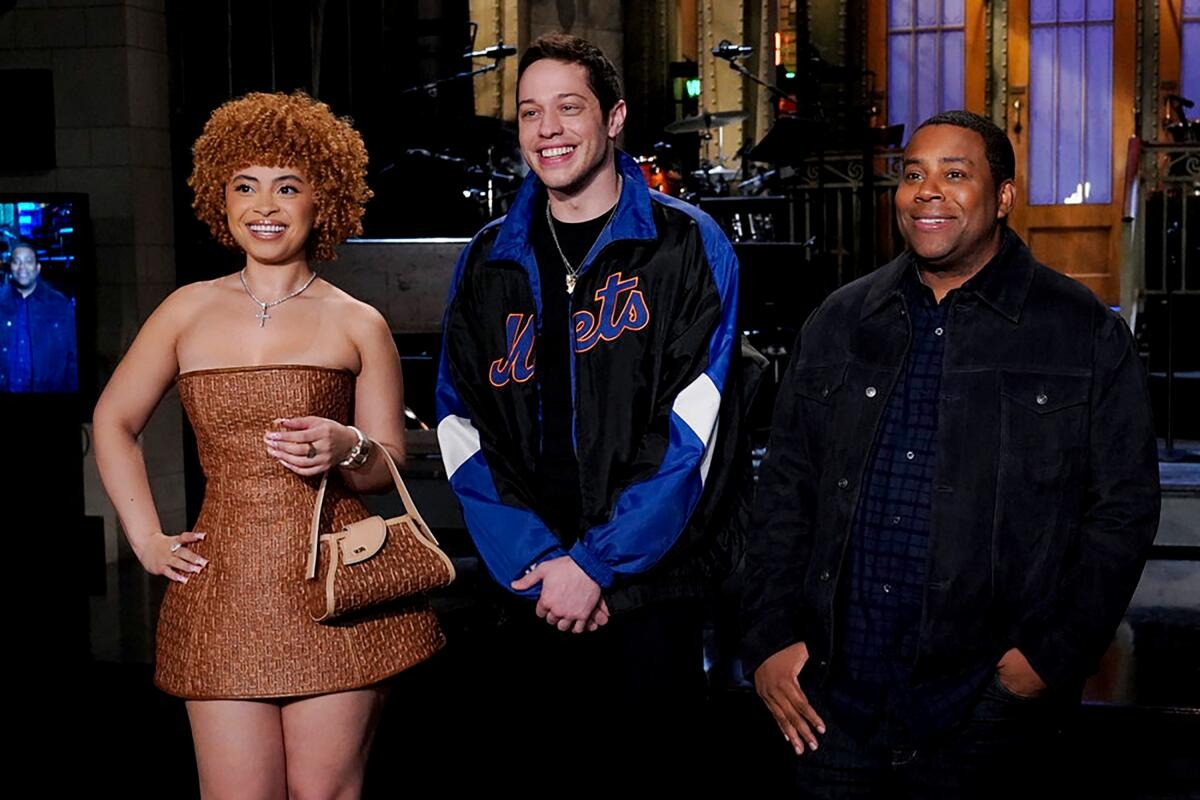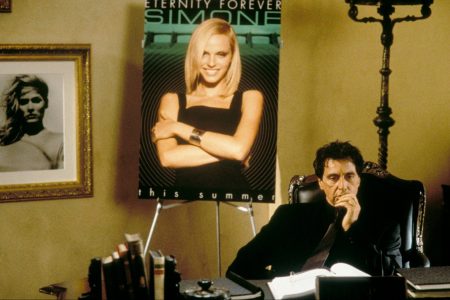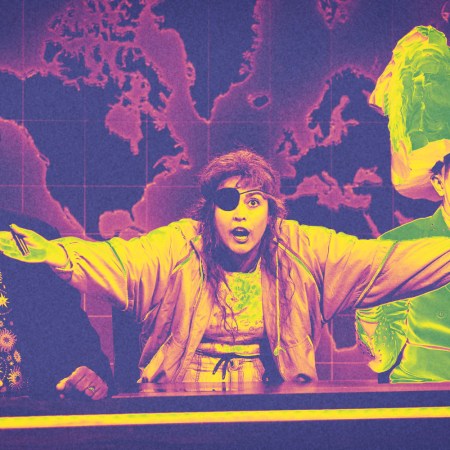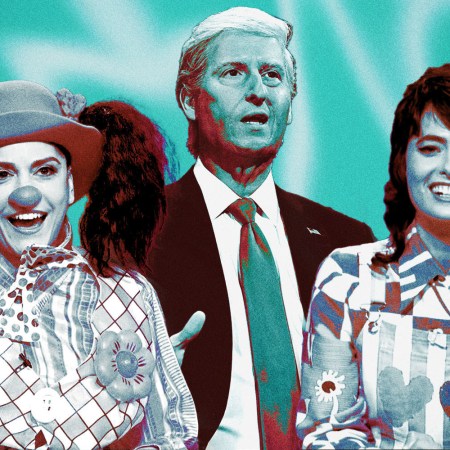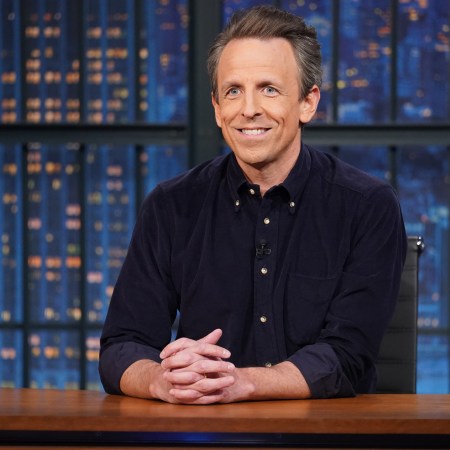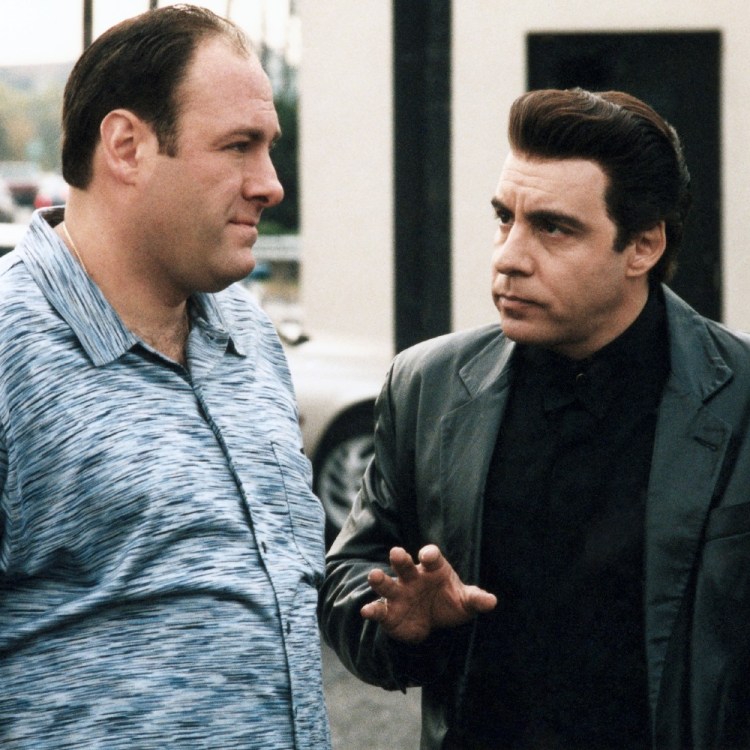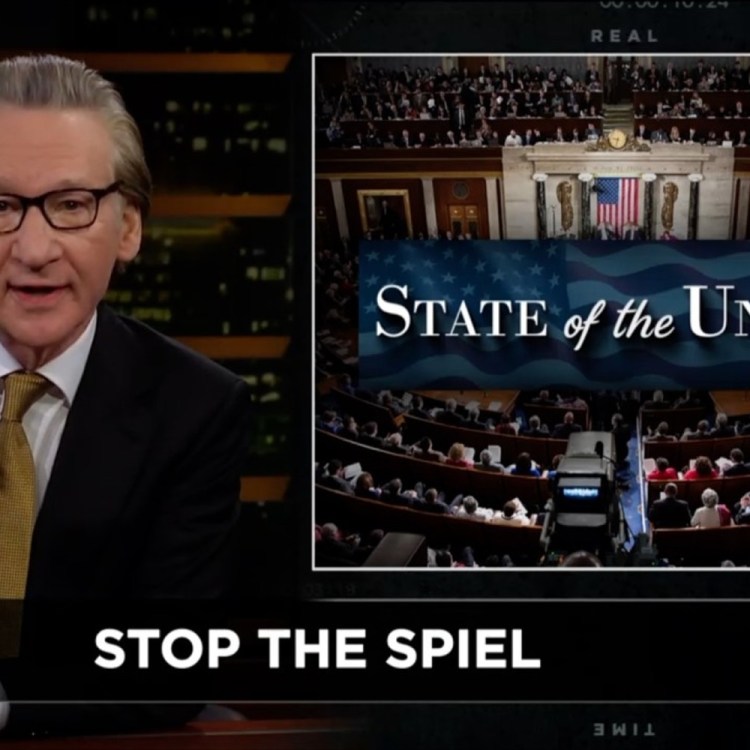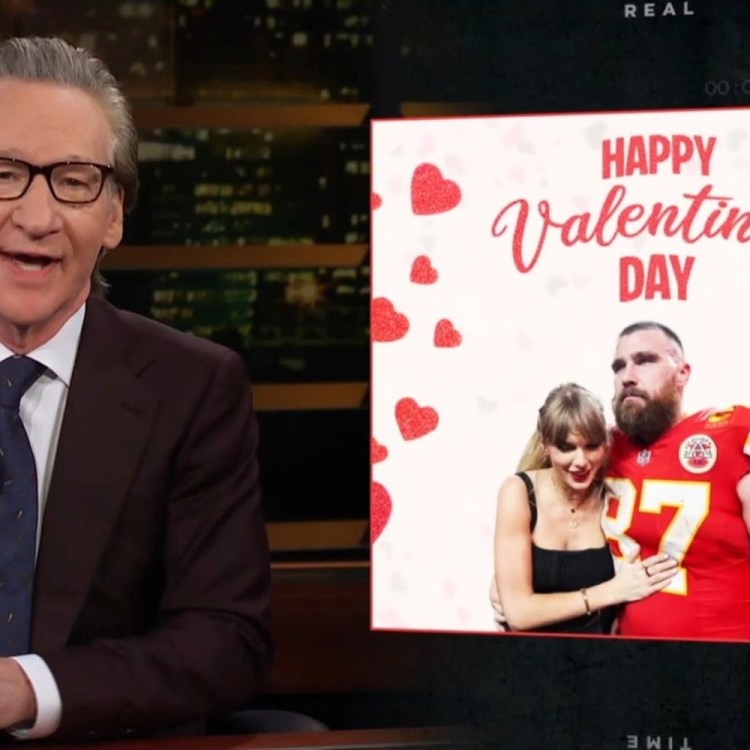On Saturday, Pete Davidson finally got his chance to host Saturday Night Live after his original planned appearance on the sketch comedy show’s season finale last spring was scrapped because of the writers’ strike. Since said strike has been resolved, other late-night staples like The Tonight Show and The Late Show have also returned with new episodes, but it begs the question: isn’t there still an actors’ strike going on? How are performers like the cast of SNL and late-night hosts like Jimmy Fallon and Stephen Colbert, who write as well as appear on camera, able to get around the current SAG-AFTRA strike without crossing the picket line?
It turns out that anyone appearing on Saturday Night Live — as well as morning news shows, talk shows, soap operas, variety, reality and game shows, sports or promotional announcements on network television — is working under the Network Television Code agreement, a separate contract that the union is not currently striking. SAG-AFTRA recently put out a statement clarifying that an appearance on SNL does not violate strike rules.
“SAG-AFTRA members appearing on Saturday Night Live either as hosts, guests or cast members are working under the Network Code agreement, which is not a contract we are striking,” the statement reads. “They are not in violation of SAG-AFTRA strike rules, and we support them in fulfilling their contractual obligations. The program is a SAG-AFTRA non-dramatic production under a separate agreement that is not subject to the union’s strike order.”
This 2002 Movie Predicted the AI Issues at the Center of the SAG Strike
Writer-director Andrew Niccol’s film “Simone” plays very differently in 2023“The majority of our members who are regular cast on Saturday Night Live had contractual obligations to the show prior to the strike. Many are under option agreements that require them to return to the show if the producers exercise their option which the producers have done,” it continues. “Our members are also subject to a ‘No Strike Clause’ in the Network Code Collective Bargaining Agreement. This means our performers agree not to strike during the term of the Collective Bargaining Agreement and to show up to work during this term (the Network Code runs through June 30, 2024). By not showing up to work, our performers can be held in breach of contract and the Union is prohibited from advising them not to work. It is important to recognize that SAG-AFTRA is fighting against the studios and not members who are required to go to work every day under other union contracts or personal service agreements. We stand with our union siblings across the industry as we also recognize our obligations under federal labor law.”
Still, you may have noticed that SNL and other late-night programs are relying more heavily on non-actor guests — musicians, comedians, athletes, pretty much anyone without a SAG membership — to fill their schedules these days. (Bad Bunny is slated to host SNL this weekend, with stand-up comic Nate Bargatze on tap for the following Saturday.) That’s because per SAG-AFTRA’s strike rules, actors are still not allowed to promote their upcoming projects if the movies or TV shows in question are for any of the studios that SAG-AFTRA is striking against. In other words, a Matthew McConaughey appearance on The Tonight Show promoting his new children’s book is okay, but an appearance to promote his next blockbuster film role would have been strictly off-limits. That makes booking these shows more challenging.
Of course, we’re glad to have them back on the air in any capacity, but anyone who’s ever watched a stiff athlete awkwardly stumble through a monologue while hosting SNL knows that this surely isn’t a viable long-term solution. Fingers crossed that SAG-AFTRA and the studios can reach some sort of resolution to the strike as soon as possible.
This article appeared in an InsideHook newsletter. Sign up for free to get more on travel, wellness, style, drinking, and culture.
